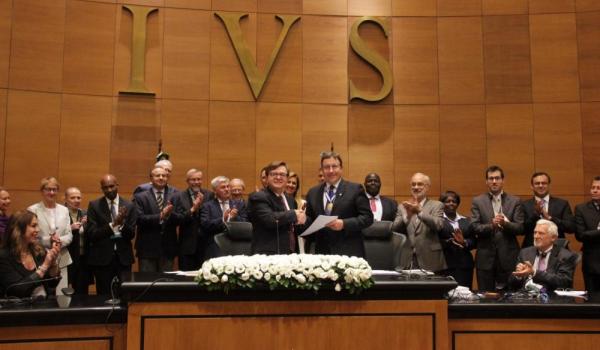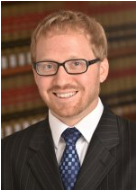IUCN WCEL Global Judicial Institute on the Environment Task Force

Vue d'ensemble et description
- Description:
-
The mission of the Global Judicial Institute on the Environment Task Force (GJIE) is to support the role of judges, courts, and tribunals to respond to pressing environmental crises.
Leadership de groupe
Mr Nick BRYNER
The Global Judicial Institute on the Environment Task Force (GJIE) is organized by judges for judges and committed to judicial independence, transparency, and integrity that supports the judiciary across the world to effectively handle cases concerning the environment. Building on a long history of successful partnerships between the IUCN World Commission on Environmental Law, UN Environment, the Organization of American States, the Asian Development Bank, and several other partners, the GJIE seeks to develop and enhance the capacity of judges, courts, and tribunals across the world to exercise their role in environmental matters through the effective implementation, compliance, and enforcement of the law. Composed of actively sitting judges from around the world and led by an elected council of judges to direct and oversee activities, the GJIE provides opportunities to exchange information, create partnerships for collaboration, strengthen capacity, and provide research and analysis on topics important for environmental adjudication, court practices, and the environmental rule of law. Key activities of the Institute include:
- Judicial capacity-building and education programs, especially to improve the administration and resolution of cases and disputes;
- Technical assistance by sharing best judicial practices, stimulating collaboration, and bolstering information exchange;
- Convening judges, courts, tribunals, court officials, judicial education institutions, and additional partners at international, regional, national, and subnational levels; and
- Research, analysis, and publications focussing on environmental adjudication and dispute resolution, court practices and procedures, court administration, legal claims and actions, judicial remedies, and environmental justice.
The Global Judicial Institute on the Environment Task Force is currently directed by an Interim Governing Committee chosen from among all Founding Members of the Institute. Current Interim Governing Committee Members are:
- Justice Antonio Herman Benjamin, Member National High Court of Brazil and Chair, IUCN World Commission on Environmental Law (Brazil)
- Justice Ragnhild Noer, Member Supreme Court of Norway and Member Steering Committee, IUCN WCEL (Norway)
- Justice Michael Wilson, Associate Judge Supreme Court of Hawai’i (USA)
- Justice Syed Mansoor Ali Shah, Member Supreme Court of Pakistan (Pakistan)
- Justice Swatanter Kumar, Chairperson National Green Tribunal (India)
- Justice I Gusti Agung Sumanatha, Member Supreme Court of Indonesia (Indonesia)
- Lord Robert Carnwath, Member Supreme Court United Kingdom and UN Environment International Advisory Council (UK)
- Justice Dr. Emmanuel Ugirashebuja, President East African Court of Justice (Rwanda)
- Justice Luc Lavrysen, Member of the Constitutional Court of Belgium and President European Forum of Judges for the Environment (Belgium)
- Justice Brian Preston, Chief Judge of the Land and Environment Court of New South Wales (Australia)
- Justice Ricardo Lorenzetti, President Supreme Court of Justice of Argentina (Argentina)
- Justice Michelle Weekes, Member Supreme Court of Judicature of Barbados (Barbados)
Quotes from the Interim Governing Committee
"The establishment of the Global Judicial Institute on the Environment Task Force (GJIE), and the first meeting of its Interim Governing Committee in Brasilia on 17-18 March 2018, are events of great significance and potential. This for me is the culmination of a process which began more than 15 years ago with the Global Judges’ Symposium on Sustainable Development and the Role of Law in Johannesburg in 2002 and the setting up the following year of the UNEP judicial task force, in which I was privileged to participate. The years since then have shown the extent of common ground between judges operating in different parts of the world, and under different legal systems, and the importance of co-operation and interchange between them. The recent meeting in Brasilia brought together a group of experienced judges from all parts of the world, under the inspired and energetic leadership of Justice Antonio Herman Benjamin. It has set the path for the development of an active programme in conjunction with UN Environment. A strong start was provided by the appearance of the GJIE as an active participant at the 8th World Water Forum, and the adoption of the Brasilia Declaration of Judges and Water Justice. I look forward to playing a continuing role in this inspirational project."
― Lord Robert Carnwath, Member Supreme Court United Kingdom and UN Environment International Advisory Council (UK)

